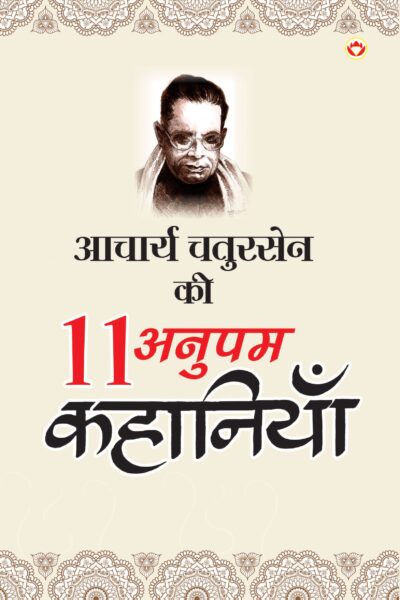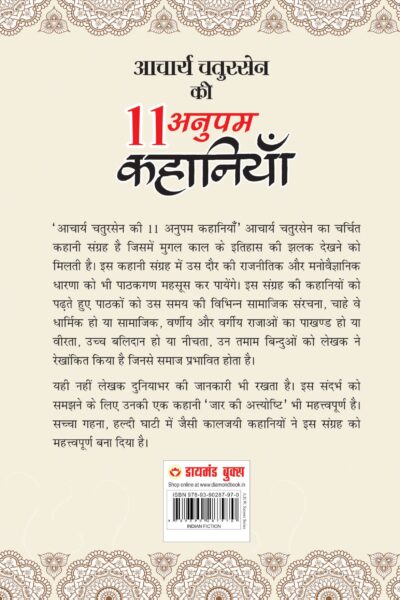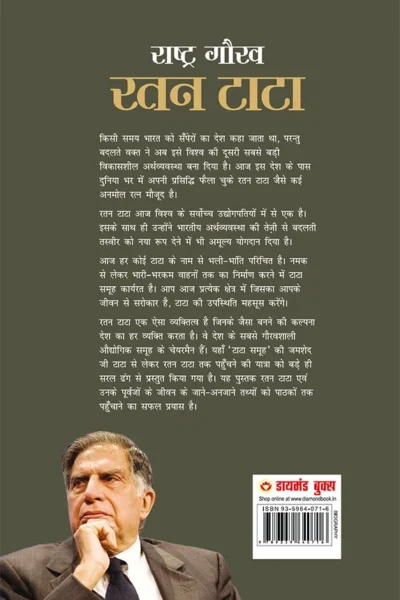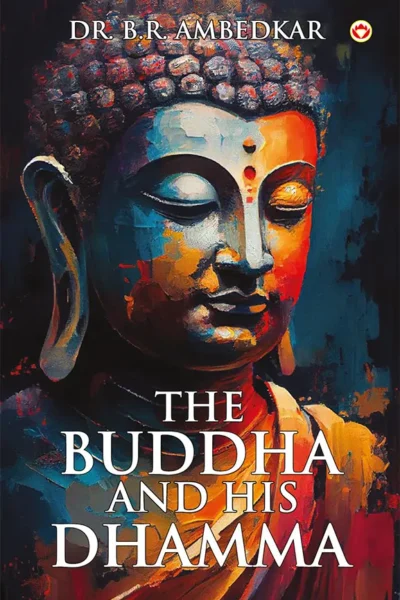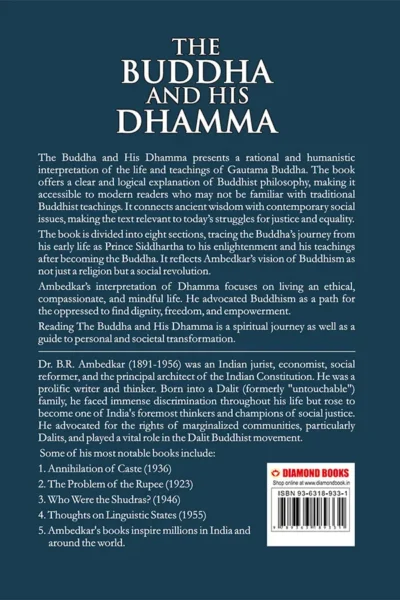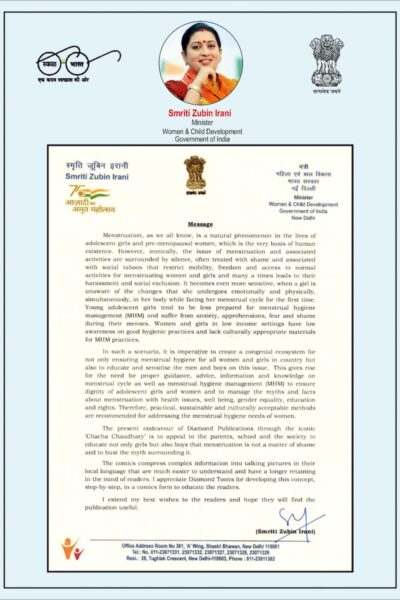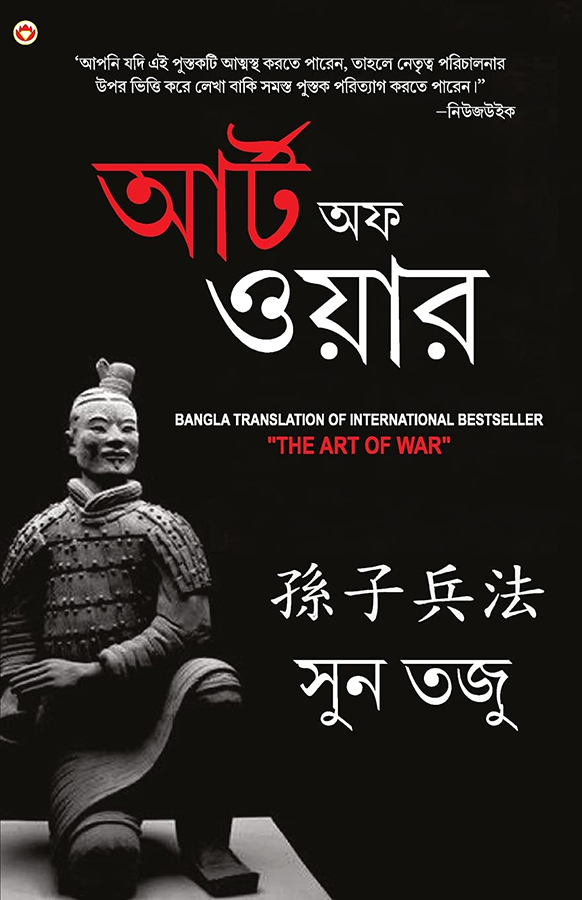- Home
-
-
- Short Stories
- Traveloc
- Novel
- Indian Classics
- Business Strategy
Shop Our top-rated business strategy books are designed for entrepreneurs and business leaders, offering proven strategies to elevate business success. Learn from industry experts and discover actionable insights to drive growth and profitability. Buy now and master the skills that set top businesses apart.
- Corporate History
Discover a comprehensive collection of corporate history books that detail the rise and success of major companies and their visionary leaders. Explore how these influential figures and their groundbreaking strategies have shaped industries and transformed the global business landscape.
- Economics
Discover the best economic and market books in India at Diamond Book Store. Our collection features essential reads on domestic and global market theories, offering in-depth analyses and key insights into economic trends. Enhance your understanding of financial markets, investment strategies, and economic principles with our expertly curated selection. Visit us to grow your knowledge and stay ahead in the world of finance.
- Romance / Fantasy
Discover captivating romance and fantasy books at Diamond Books. From enchanting love stories to magical adventures, these books offer readers a perfect blend of passion and imagination. Ideal for those who love romantic and fantastical narratives.
- Finance
Buy top finance and money management books at Diamond Book Store. Enhance your money-saving skills with expert strategies and key insights. Explore our curated selection to discover effective saving techniques and financial wisdom. Shop now to gain valuable knowledge, make informed decisions, and secure a prosperous financial future.
- Network Marketing
Network Marketing is a business model that leverages personal networks to promote products and services. It empowers individuals to build their own sales team, earning commissions not only from their own sales but also from the sales made by their team members. This model encourages entrepreneurship, collaboration, and exponential growth
- See More
- Short Stories
-
Books, Bookazine, Fiction, Magazines
₹30.00Original price was: ₹30.00.₹29.00Current price is: ₹29.00. Add to cart
-
-
Diamond Books, Books, Fiction, Indian Classics
₹450.00Original price was: ₹450.00.₹449.00Current price is: ₹449.00. Add to cart
-
-
Diamond Books, Fiction, Language & Literature, Short Stories
₹175.00Original price was: ₹175.00.₹174.00Current price is: ₹174.00. Add to cart
-
-
₹1,300.00 – ₹19,000.00 Select options This product has multiple variants. The options may be chosen on the product page
-
-
-
-
- Autobiography
Explore our extensive collection of autobiographies and Memories, showcasing the personal stories, challenges, and triumphs of influential figures from all walks of life. These powerful narratives provide an intimate glimpse into the lives and legacies of remarkable individuals. Discover their inspiring journeys and find your next great read—visit us now!
- Religious
Our collection of religious books is designed to deepen faith, enhance wisdom, and elevate spirituality. It includes timeless classics and contemporary works, offering insightful guidance and teachings to develop a closer relationship with God and understanding of spiritual journey. Shop now for transformative faith and knowledge.
- Internet
Computing and the internet are rapidly evolving fields that shape our daily lives and future innovations. This guide offers a comprehensive look at the latest trends, technologies, and best practices in the digital realm. Whether you’re interested in cutting-edge computing advancements or the latest developments on the internet, this resource provides valuable insights to help you stay informed and make the most of the digital world
- Family Health
Explore Diamond Books’ family health collection. Featuring comprehensive guides on wellness and practical nutrition tips, these books provide essential advice for keeping your family healthy and thriving.
- History & Politics
Discover the wonders of India, a land of rich history, vibrant culture, and stunning landscapes. Explore famous landmarks, delve into the diverse traditions, and experience the beauty of India’s heritage. Whether you’re seeking historical insights or planning a trip, India offers endless possibilities for discovery and adventure
- Hinduism
Dive into Hinduism with comprehensive resources that cover key beliefs, rituals, and cultural practices. Explore the spiritual and philosophical dimensions of Hinduism, including its rich traditions and sacred texts, to gain a deeper understanding of this ancient religion. Ideal for those seeking to learn about the diverse aspects of Hindu culture and spirituality.
- Scientist & Inventors
Explore the diamond book store for the best Scientist & Inventors Books Collection” includes biographies, autobiographies, and detailed accounts of the lives and works of iconic figures like Albert Einstein, Nikola Tesla, Marie Curie, Thomas Edison, and many more. Each book delves deep into the minds of these geniuses, offering insights into their thought processes, challenges, and the impact of their discoveries on the modern world.
- Occult and Vastu
Unlock the secrets of the occult and Vastu Shastra with our curated books. Explore spiritual wisdom, mystical arts, and harmonious living guides.
- Ayurveda
Discover the essence of Ayurveda with our collection of books at Diamond Books. Featuring ancient practices and modern applications, these books offer comprehensive guidance on achieving balance and wellness through Ayurvedic principles.
- See More
- Autobiography
-
Fiction Books, Autobiography & Memories, Biography
₹250.00Original price was: ₹250.00.₹249.00Current price is: ₹249.00. Add to cart
-
-
- Blog
- Publish With Us
Art of War in Bengali (যুদ্ধ কলা : আর্টঅফ ওয়ার)
₹200.00
- About the Book
- Book Details
The Art of War is an enduring classic that holds a special place in the culture and history of East Asia. An ancient Chinese text on the philosophy and politics of warfare and military strategy, the treatise was written in 6th century B.C. by a warrior-philosopher now famous all over the world as Sun Tzu.
Sun Tzu’s teachings remain as relevant to leaders and strategists today as they were to rulers and military generals in ancient times. Divided into thirteen chapters and written succinctly, The Art of War is a must-read for anybody who works in a competitive environment.
About the Author
Modern day historians who studied The Art of War deduce the book was completed between 470BC and 220BC- based on various features such as the type of weaponry used and writing style, among others. It is therefore likely that Sun Tzu was born around 450BC and lived up to 380BC. During these years called Era of the Warring States, China witnessed unprecedented political and social upheavals due to small kingdoms and territories incessantly battling one-another to expand their dominions. They attribute this loss of records related to Sun Tzus birth and other details to this turmoil.
Despite, historians have laboriously compiled a sketch of what Sun Tzus life would have possibly been, using advanced translation technologies coupled with extensive studies into ancient China and its culture.
Historians, military analysts, psychologists and history enthusiasts agree that Sun Tzu was a Chinese general who served as a war strategist and military leader during the reign of King He Lu, the ruler of the Wu state, around 470BC.
Sun Tzu, historians assume, was born in the city called Qi, in Wu state of ancient China. Details including his parentage, childhood, education, family life and rise to prominence as a general and military strategist par excellence, various other aspects of life remain shrouded in mystery. Modern day Chinese historians and their counterparts across the globe continue to piece Sun Tzus biography to date, with limited success. Translations of Sun Tzus works began about 300 years ago and are ongoing.
Ancient Chinese historian and chronicler, Suma Qian, in his The Records of the Grand Historians, cites the Era of the Warring States, wider acceptance of Taoism and military expediency as the three precursors that impelled Sun Tzu to devise and later, author The Art of War. During this extremely turbulent period, the seven main kingdoms of ancient China, the Jin, Chu, Qin, Qi, Wei, Yue and Wu were at loggerheads. These kingdoms, along with their vassal states, attacked one-another to win large swathes of territory to unify China under their influence.
Sun Tzu is said to have began his military career as an ordinary soldier in the army of King He Lu of Wu, whose state was among ones frequently at war.
Despite his young age, he rose through the rank and file of the Wu army and attained some of the highest positions in the military echelons. A tested and efficient strategy utilized by Sun Tzu was to learn the vulnerability of foes and the extent of their tactical disadvantages. The opportunity to secure ourselves against defeat lies in our own hands, but the opportunity of defeating the enemy is provided by the enemy himself, he said. This profound observation culminated into several war victories for Sun Tzu.
Additional information
| Author | Sun Tzu |
|---|---|
| ISBN | 9789356847033 |
| Pages | 48 |
| Format | Paperback |
| Language | Bengali |
| Publisher | Diamond Books |
| Amazon | |
| Flipkart | https://www.flipkart.com/art-war-bengali/p/itme35c6465d2122?pid=9789356847033 |
| ISBN 10 | 9356847037 |
The Art of War is an enduring classic that holds a special place in the culture and history of East Asia. An ancient Chinese text on the philosophy and politics of warfare and military strategy, the treatise was written in 6th century B.C. by a warrior-philosopher now famous all over the world as Sun Tzu.
Sun Tzu’s teachings remain as relevant to leaders and strategists today as they were to rulers and military generals in ancient times. Divided into thirteen chapters and written succinctly, The Art of War is a must-read for anybody who works in a competitive environment.
About the Author
Modern day historians who studied The Art of War deduce the book was completed between 470BC and 220BC- based on various features such as the type of weaponry used and writing style, among others. It is therefore likely that Sun Tzu was born around 450BC and lived up to 380BC. During these years called Era of the Warring States, China witnessed unprecedented political and social upheavals due to small kingdoms and territories incessantly battling one-another to expand their dominions. They attribute this loss of records related to Sun Tzus birth and other details to this turmoil.
Despite, historians have laboriously compiled a sketch of what Sun Tzus life would have possibly been, using advanced translation technologies coupled with extensive studies into ancient China and its culture.
Historians, military analysts, psychologists and history enthusiasts agree that Sun Tzu was a Chinese general who served as a war strategist and military leader during the reign of King He Lu, the ruler of the Wu state, around 470BC.
Sun Tzu, historians assume, was born in the city called Qi, in Wu state of ancient China. Details including his parentage, childhood, education, family life and rise to prominence as a general and military strategist par excellence, various other aspects of life remain shrouded in mystery. Modern day Chinese historians and their counterparts across the globe continue to piece Sun Tzus biography to date, with limited success. Translations of Sun Tzus works began about 300 years ago and are ongoing.
Ancient Chinese historian and chronicler, Suma Qian, in his The Records of the Grand Historians, cites the Era of the Warring States, wider acceptance of Taoism and military expediency as the three precursors that impelled Sun Tzu to devise and later, author The Art of War. During this extremely turbulent period, the seven main kingdoms of ancient China, the Jin, Chu, Qin, Qi, Wei, Yue and Wu were at loggerheads. These kingdoms, along with their vassal states, attacked one-another to win large swathes of territory to unify China under their influence.
Sun Tzu is said to have began his military career as an ordinary soldier in the army of King He Lu of Wu, whose state was among ones frequently at war.
Despite his young age, he rose through the rank and file of the Wu army and attained some of the highest positions in the military echelons. A tested and efficient strategy utilized by Sun Tzu was to learn the vulnerability of foes and the extent of their tactical disadvantages. The opportunity to secure ourselves against defeat lies in our own hands, but the opportunity of defeating the enemy is provided by the enemy himself, he said. This profound observation culminated into several war victories for Sun Tzu.
ISBN10-9356847037





